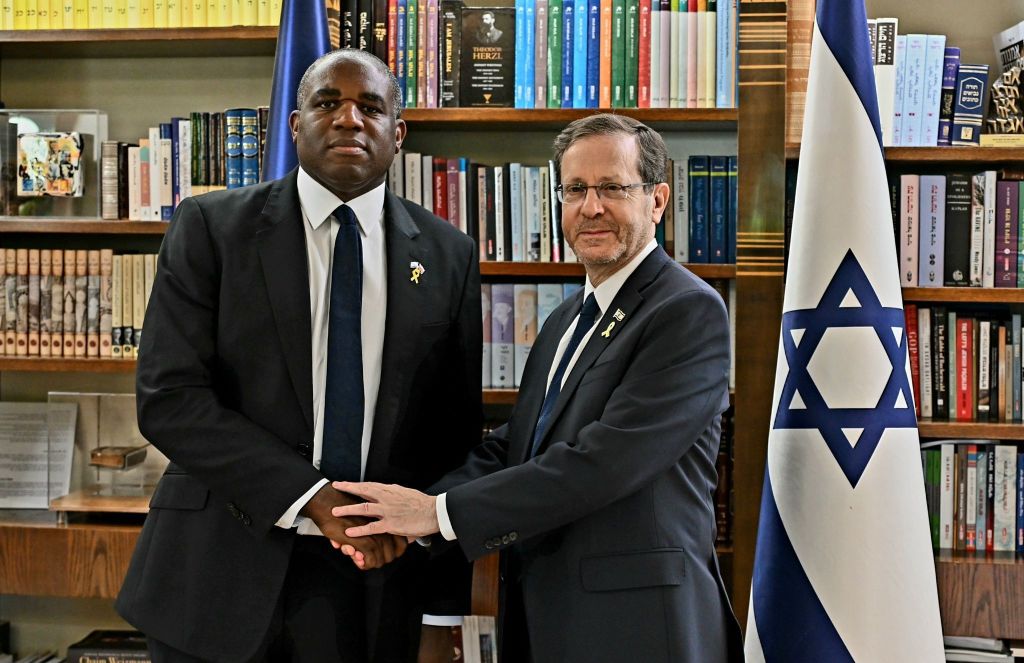The United Kingdom has become the first European country to announce it will suspend 30 export licenses to Israel for arms used in its war in Gaza. Foreign Secretary David Lammy told the House of Commons on Monday that while the Government “could not arbitrate on whether Israel has breached international humanitarian law”, there was a “clear risk” that British arms exports “might be used to commit or facilitate a serious violation”.
Israeli Prime Minister Benjamin Netanyahu responded, condemning the decision: “Instead of standing with Israel, a fellow democracy defending itself against barbarism, Britain’s misguided decision will only embolden Hamas.” Conservative opposition figures, including Boris Johnson, echoed Netanyahu’s criticism, as did Chief Rabbi Ephraim Mirvis, who posted on X that it “beggars belief […] at a time when Israel is fighting a war for its very survival on seven fronts forced upon it on the 7th October”.
The Labour government’s decision is, however, not unprecedented, nor is it catastrophic for Israel. Previous administrations led by Margaret Thatcher, Tony Blair and Gordon Brown have all imposed similar restrictions during past Israeli military campaigns. British companies currently hold 350 export licenses to Israel, and British defence exports to Israel amounted to just £18 million in 2023, down from £42 million in 2022. What’s more, British exports to Israel account for only 0.02% of Israel’s total military imports, far less than contributions from Italy, Germany, and the United States.
Critically, the suspension did not include components for F-35 fighter jets — part of a multilateral programme involving the United States — that have been used in Gaza. In a speech at Policy Exchange on 29 August, a former national security advisor to Donald Trump, Robert O’Brien, warned that a suspension of British cooperation “has the potential to tear open the special relationship”.
Nevertheless, Britain’s decision carries symbolic weight and reflects the new government’s evolving stance on the Middle East conflict and its commitment to adhering to international legal frameworks in foreign policy. Although the announcement came a day after the discovery of the bodies of six Israeli hostages, the Labour Party has been scrutinising British defence exports to Israel for months.
In April, while serving as the shadow foreign secretary, Lammy urged the Conservative government to release its legal justification for continuing to grant export licenses and pledged that Labour would reassess the process if it came into power. But with Keir Starmer cancelling the appointment of Gwyn Jenkins as national security adviser and expanding the defence review, Labour is now getting started on foreign policy. The Government has also restored funding to UNRWA, the Palestinian refugee agency, and reversed its opposition to the International Criminal Court’s arrest warrant for Netanyahu.
Britain has limited capacity to exert pressure on the Israeli government and, in the broad picture of the war, the suspension of some export licenses is inconsequential. As the conflict nears its one-year anniversary on 7 October, however, it hovers between a potential settlement and further escalation. On Monday Israel experienced its largest domestic protests against the war, and the government is being pressured to secure a deal for the surviving hostages. Meanwhile, the IDF is executing a large operation in Jenin in the West Bank, just as the repetitive cycle of artillery fire over the border into Lebanon threatens an expansion of the war.
Britain’s decision is representative of wider, though quieter, opposition to Israel’s action in the international community: it is a clear sign that military exports are considered one of the few available mechanisms to influence Netanyahu. In March Canada voted to suspend arms sales to Israel after a non-binding parliamentary vote, and two months later the Biden administration briefly paused shipments in the lead-up to the IDF’s attack on Rafah.
The United States supplies around 69% of arms sales to Israel and is the only nation which could really forcefully change Netanyahu’s behaviour. Vice President and Democratic presidential candidate Kamala Harris has ruled out the suspension of weapons sales. But Joe Biden is a president in search of a legacy and, historically, there has been no more enticing legacy for American presidents than a deal in the Middle East. For the Biden administration, halting weapons sales is one of the final cards on the table — and the Americans may just play it.











Join the discussion
Join like minded readers that support our journalism by becoming a paid subscriber
To join the discussion in the comments, become a paid subscriber.
Join like minded readers that support our journalism, read unlimited articles and enjoy other subscriber-only benefits.
Subscribe